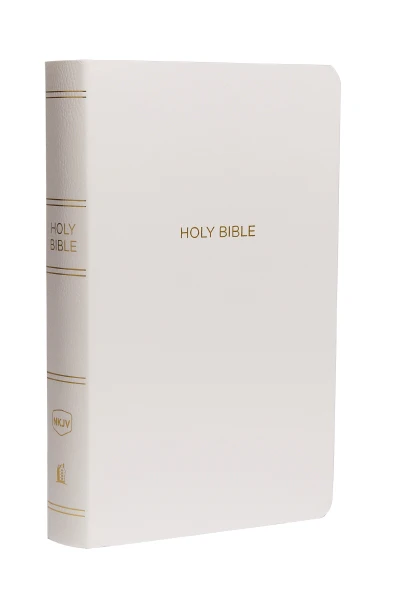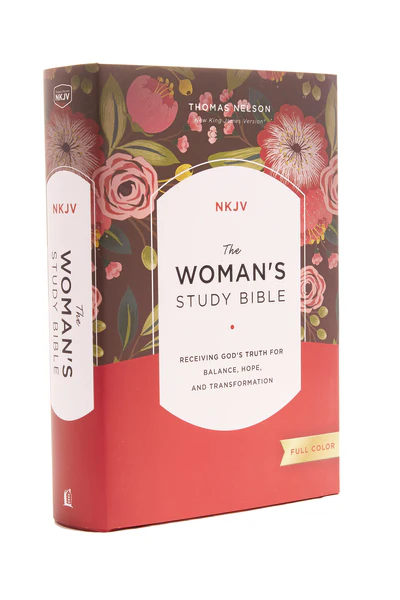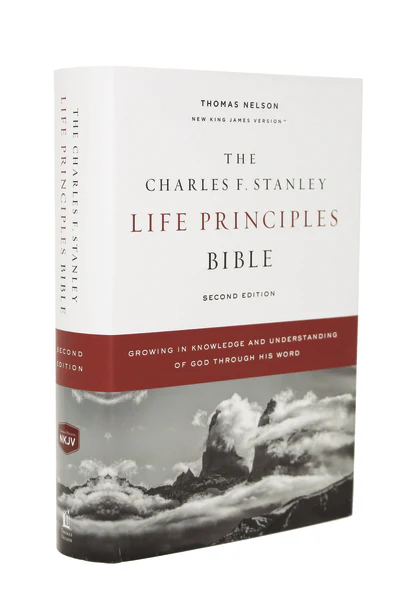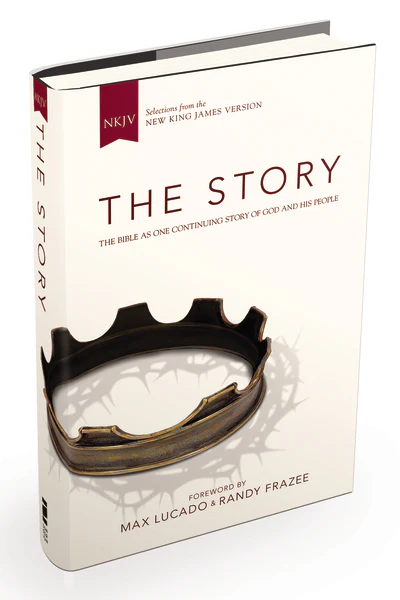Leviticus 22-23
New King James Version
The Holiness of the Offerings
22 Then the Lord spoke to Moses, saying, 2 “Speak to Aaron and his sons, that they (A)separate[a] themselves from the holy things of the children of Israel, and that they (B)do not profane My holy name by what they (C)dedicate to Me: I am the Lord. 3 Say to them: ‘Whoever of all your descendants throughout your generations, who goes near the holy things which the children of Israel dedicate to the Lord, (D)while he has [b]uncleanness upon him, that person shall be cut off from My presence: I am the Lord.
4 ‘Whatever man of the descendants of Aaron, who is a (E)leper or has (F)a discharge, shall not eat the holy offerings (G)until he is clean. And (H)whoever touches anything made unclean by a corpse, or (I)a man who has had an emission of semen, 5 or (J)whoever touches any creeping thing by which he would be made unclean, or (K)any person by whom he would become unclean, whatever his uncleanness may be— 6 the person who has touched any such thing shall be unclean until evening, and shall not eat the holy offerings unless he (L)washes his body with water. 7 And when the sun goes down he shall be clean; and afterward he may eat the holy offerings, because (M)it is his food. 8 (N)Whatever dies naturally or is torn by beasts he shall not eat, to defile himself with it: I am the Lord.
9 ‘They shall therefore keep (O)My [c]ordinance, (P)lest they bear sin for it and die thereby, if they profane it: I the Lord sanctify them.
10 (Q)‘No outsider shall eat the holy offering; one who [d]dwells with the priest, or a hired servant, shall not eat the holy thing. 11 But if the priest (R)buys a person with his money, he may eat it; and one who is born in his house may eat his food. 12 If the priest’s daughter is married to an outsider, she may not eat of the holy offerings. 13 But if the priest’s daughter is a widow or divorced, and has no child, and has returned to her father’s house as in her youth, she may eat her father’s food; but no outsider shall eat it.
14 ‘And if a man eats the holy offering unintentionally, then he shall restore a holy offering to the priest, and add one-fifth to it. 15 They shall not profane the (S)holy offerings of the children of Israel, which they offer to the Lord, 16 or allow them to bear the guilt of trespass when they eat their holy offerings; for I the Lord sanctify them.’ ”
Offerings Accepted and Not Accepted
17 And the Lord spoke to Moses, saying, 18 “Speak to Aaron and his sons, and to all the children of Israel, and say to them: (T)‘Whatever man of the house of Israel, or of the strangers in Israel, who [e]offers his sacrifice for any of his vows or for any of his freewill offerings, which they offer to the Lord as a burnt offering— 19 (U)you shall offer of your own free will a male without blemish from the cattle, from the sheep, or from the goats. 20 (V)Whatever has a defect, you shall not offer, for it shall not be acceptable on your behalf. 21 And (W)whoever offers a sacrifice of a peace offering to the Lord, (X)to fulfill his vow, or a freewill offering from the cattle or the sheep, it must be perfect to be accepted; there shall be no defect in it. 22 (Y)Those that are blind or broken or maimed, or have an [f]ulcer or eczema or scabs, you shall not offer to the Lord, nor make (Z)an offering by fire of them on the altar to the Lord. 23 Either a bull or a lamb that has any limb (AA)too long or too short you may offer as a freewill offering, but for a vow it shall not be accepted.
24 ‘You shall not offer to the Lord what is bruised or crushed, or torn or cut; nor shall you make any offering of them in your land. 25 Nor (AB)from a foreigner’s hand shall you offer any of these as (AC)the bread of your God, because their (AD)corruption is in them, and defects are in them. They shall not be accepted on your behalf.’ ”
26 And the Lord spoke to Moses, saying: 27 (AE)“When a bull or a sheep or a goat is born, it shall be seven days with its mother; and from the eighth day and thereafter it shall be accepted as an offering made by fire to the Lord. 28 Whether it is a cow or ewe, do not kill both her (AF)and her young on the same day. 29 And when you (AG)offer a sacrifice of thanksgiving to the Lord, offer it of your own free will. 30 On the same day it shall be eaten; you shall leave (AH)none of it until morning: I am the Lord.
31 (AI)“Therefore you shall keep My commandments, and perform them: I am the Lord. 32 (AJ)You shall not profane My holy name, but (AK)I will be [g]hallowed among the children of Israel. I am the Lord who (AL)sanctifies you, 33 (AM)who brought you out of the land of Egypt, to be your God: I am the Lord.”
Feasts of the Lord
23 And the Lord spoke to Moses, saying, 2 “Speak to the children of Israel, and say to them: ‘The feasts of the Lord, which you shall proclaim to be (AN)holy convocations, these are My feasts.
The Sabbath
3 (AO)‘Six days shall work be done, but the seventh day is a Sabbath of solemn rest, a holy convocation. You shall do no work on it; it is the Sabbath of the Lord in all your dwellings.
The Passover and Unleavened Bread(AP)
4 (AQ)‘These are the feasts of the Lord, holy convocations which you shall proclaim at their appointed times. 5 (AR)On the fourteenth day of the first month at twilight is the Lord’s Passover. 6 And on the fifteenth day of the same month is the Feast of Unleavened Bread to the Lord; seven days you must eat unleavened bread. 7 (AS)On the first day you shall have a holy convocation; you shall do no [h]customary work on it. 8 But you shall offer an offering made by fire to the Lord for seven days. The seventh day shall be a holy convocation; you shall do no customary work on it.’ ”
The Feast of Firstfruits
9 And the Lord spoke to Moses, saying, 10 “Speak to the children of Israel, and say to them: (AT)‘When you come into the land which I give to you, and reap its harvest, then you shall bring a sheaf of (AU)the firstfruits of your harvest to the priest. 11 He shall (AV)wave the sheaf before the Lord, to be accepted on your behalf; on the day after the Sabbath the priest shall wave it. 12 And you shall offer on that day, when you wave the sheaf, a male lamb of the first year, without blemish, as a burnt offering to the Lord. 13 Its grain offering shall be two-tenths of an ephah of fine flour mixed with oil, an offering made by fire to the Lord, for a [i]sweet aroma; and its drink offering shall be of wine, one-fourth of a hin. 14 You shall eat neither bread nor parched grain nor fresh grain until the same day that you have brought an offering to your God; it shall be a statute forever throughout your generations in all your dwellings.
The Feast of Weeks(AW)
15 ‘And you shall count for yourselves from the day after the Sabbath, from the day that you brought the sheaf of the wave offering: seven Sabbaths shall be completed. 16 Count (AX)fifty days to the day after the seventh Sabbath; then you shall offer (AY)a new grain offering to the Lord. 17 You shall bring from your dwellings two wave loaves of two-tenths of an ephah. They shall be of fine flour; they shall be baked with leaven. They are (AZ)the firstfruits to the Lord. 18 And you shall offer with the bread seven lambs of the first year, without blemish, one young bull, and two rams. They shall be as a burnt offering to the Lord, with their grain offering and their drink offerings, an offering made by fire for a sweet aroma to the Lord. 19 Then you shall sacrifice (BA)one kid of the goats as a sin offering, and two male lambs of the first year as a sacrifice of a (BB)peace offering. 20 The priest shall wave them with the bread of the firstfruits as a wave offering before the Lord, with the two lambs. (BC)They shall be holy to the Lord for the priest. 21 And you shall proclaim on the same day that it is a holy convocation to you. You shall do no customary work on it. It shall be a statute forever in all your dwellings throughout your generations.
22 (BD)‘When you reap the harvest of your land, you shall not wholly reap the corners of your field when you reap, nor shall you gather any gleaning from your harvest. You shall leave them for the poor and for the stranger: I am the Lord your God.’ ”
The Feast of Trumpets(BE)
23 Then the Lord spoke to Moses, saying, 24 “Speak to the children of Israel, saying: ‘In the (BF)seventh month, on the first day of the month, you shall have a sabbath-rest, (BG)a memorial of blowing of trumpets, a holy convocation. 25 You shall do no customary work on it; and you shall offer an offering made by fire to the Lord.’ ”
The Day of Atonement(BH)
26 And the Lord spoke to Moses, saying: 27 (BI)“Also the tenth day of this seventh month shall be the Day of Atonement. It shall be a holy convocation for you; you shall afflict your souls, and offer an offering made by fire to the Lord. 28 And you shall do no work on that same day, for it is the Day of Atonement, (BJ)to make atonement for you before the Lord your God. 29 For any person who is not (BK)afflicted in soul on that same day (BL)shall be cut off from his people. 30 And any person who does any work on that same day, (BM)that person I will destroy from among his people. 31 You shall do no manner of work; it shall be a statute forever throughout your generations in all your dwellings. 32 It shall be to you a sabbath of solemn rest, and you shall [j]afflict your souls; on the ninth day of the month at evening, from evening to evening, you shall [k]celebrate your sabbath.”
The Feast of Tabernacles(BN)
33 Then the Lord spoke to Moses, saying, 34 “Speak to the children of Israel, saying: (BO)‘The fifteenth day of this seventh month shall be the Feast of Tabernacles for seven days to the Lord. 35 On the first day there shall be a holy convocation. You shall do no customary work on it. 36 For seven days you shall offer an (BP)offering made by fire to the Lord. (BQ)On the eighth day you shall have a holy convocation, and you shall offer an offering made by fire to the Lord. It is a (BR)sacred[l] assembly, and you shall do no customary work on it.
37 (BS)‘These are the feasts of the Lord which you shall proclaim to be holy convocations, to offer an offering made by fire to the Lord, a burnt offering and a grain offering, a sacrifice and drink offerings, everything on its day— 38 (BT)besides the Sabbaths of the Lord, besides your gifts, besides all your vows, and besides all your freewill offerings which you give to the Lord.
39 ‘Also on the fifteenth day of the seventh month, when you have (BU)gathered in the fruit of the land, you shall keep the feast of the Lord for seven days; on the first day there shall be a sabbath-rest, and on the eighth day a sabbath-rest. 40 And (BV)you shall take for yourselves on the first day the [m]fruit of beautiful trees, branches of palm trees, the boughs of leafy trees, and willows of the brook; (BW)and you shall rejoice before the Lord your God for seven days. 41 (BX)You shall keep it as a feast to the Lord for seven days in the year. It shall be a statute forever in your generations. You shall celebrate it in the seventh month. 42 (BY)You shall dwell in [n]booths for seven days. (BZ)All who are native Israelites shall dwell in booths, 43 (CA)that your generations may (CB)know that I made the children of Israel dwell in booths when (CC)I brought them out of the land of Egypt: I am the Lord your God.’ ”
44 So Moses (CD)declared to the children of Israel the feasts of the Lord.
Footnotes
- Leviticus 22:2 keep themselves apart from
- Leviticus 22:3 defilement
- Leviticus 22:9 charge
- Leviticus 22:10 As a visitor
- Leviticus 22:18 brings his offering
- Leviticus 22:22 running sore
- Leviticus 22:32 treated as holy
- Leviticus 23:7 occupational
- Leviticus 23:13 pleasing
- Leviticus 23:32 humble yourselves
- Leviticus 23:32 observe your sabbath
- Leviticus 23:36 solemn
- Leviticus 23:40 foliage
- Leviticus 23:42 tabernacles; shelters made of boughs
Scripture taken from the New King James Version®. Copyright © 1982 by Thomas Nelson. Used by permission. All rights reserved.
Bible Gateway Recommends






